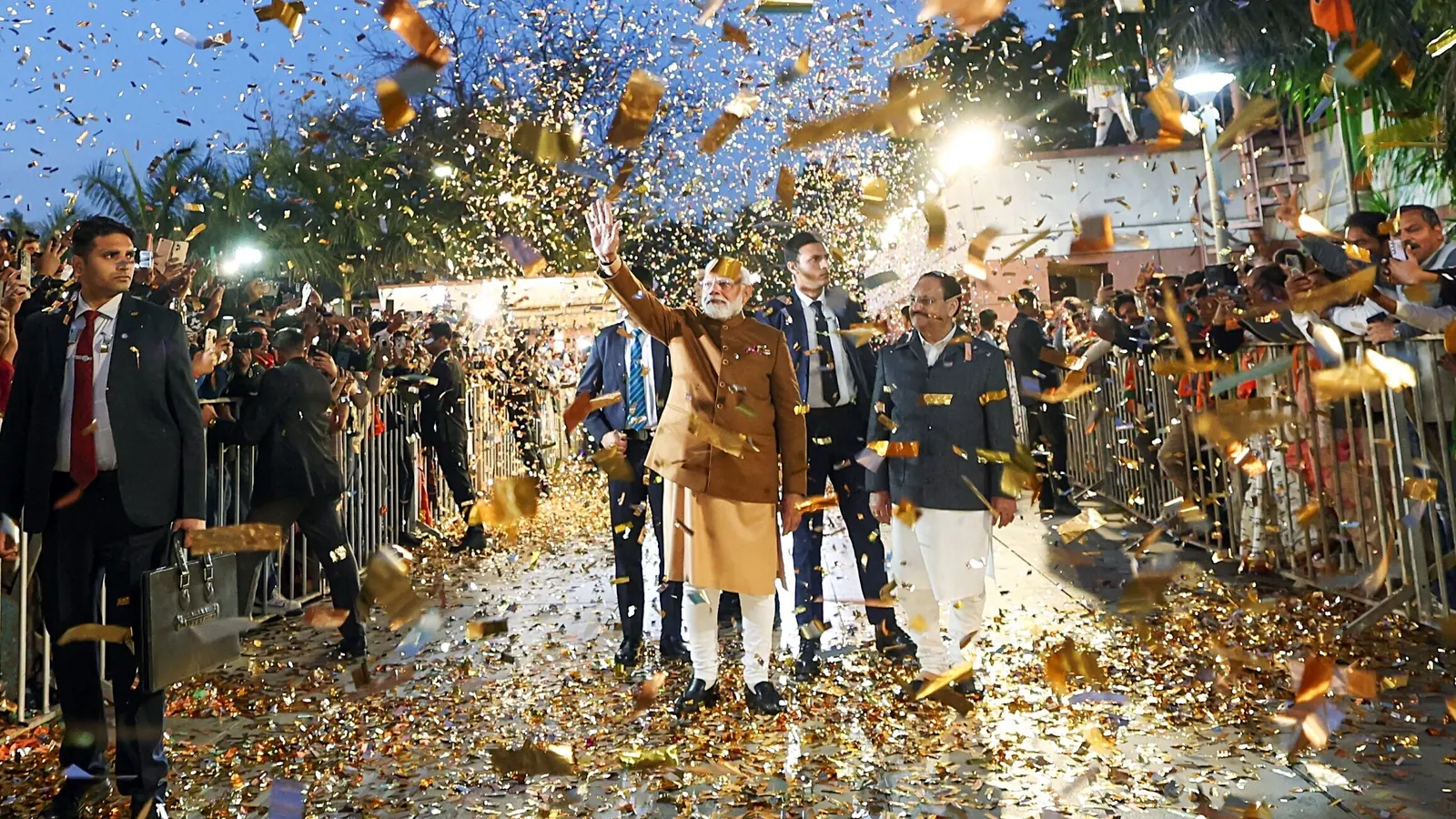The BJP secures a decisive victory in Delhi Election 2025, ending AAP’s dominance as the party faces a dramatic collapse after a decade in power.
The outcome of the Delhi Assembly elections is more about the Aam Aadmi Party’s (AAP) sharp decline than it is about the BJP’s growth. The AAP, a political group that surged to prominence in 2013, has been overtaken by the BJP, which has regained power after more than 26 years. This development does not, however, represent an abrupt alteration in Delhi’s political climate. Through the Delhi Police (Union Home Ministry), the Union Urban Development Ministry, the Lieutenant Governor, and municipal corporations, the BJP has mostly controlled administration since 2014. It has also won three general elections and all seven Lok Sabha seats. From an anti-corruption campaign to a political organisation that first enthralled supporters with its novel rhetoric against the established political elite, the AAP’s ascent was based on its appeal to Delhi’s middle class. However, its form of government quickly came to be associated with cynical politics, reckless populism, and more foul political language. Its legitimacy started to crumble as its governance became less effective as it attempted to solidify power through unbridled welfarism. The last straw was the revelation of significant corruption charges, which led to the discovery that Chief Minister Arvind Kejriwal had renovated his official residence at a cost of over ₹52.7 crore of public monies. This left the AAP’s integrity in ruins and revealed the conflict between its fundamental principles and its behaviour while in power.
This resounding win offers new prospects for the BJP. The party may now concentrate on enhancing governance, civic facilities, and infrastructure—areas that could provide immediate gains. Delhi’s political and economic ties to Uttar Pradesh, Bihar, and Haryana have strengthened its hold on the Hindi heartland. In the meantime, Mr. Kejriwal’s attempts to establish himself as a viable national substitute for Prime Minister Narendra Modi have been severely hampered, if not completely derailed. Additionally, his plan to use Muslim voters as a captive base of support has not worked. In a broader sense, the non-BJP opposition is affected by the demise of the AAP. It now seems erroneous to assume that the outcome of the general election in 2024 marked a significant movement away from the BJP. If the opposition parties want to successfully oppose the ruling party, they need to reevaluate their tactics. Even though the Congress came up empty-handed, the defeat of the AAP may provide it a boost, but it may also pose problems for its leadership of the INDIA group, which has been criticised for failing to unite against the BJP.










